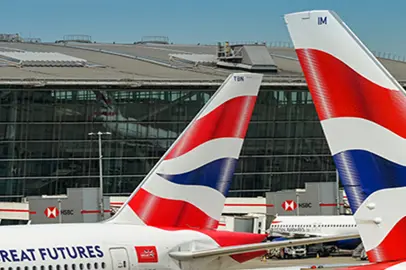24 April 2020
IATA news brief: increased risk to jobs as european airline revenues collapse
The present 90% collapse in air traffic puts around million jobs at risk across Europe
The International Air Transport Association (IATA) released further evidence of the risk to jobs from the mounting financial crisis threatening European airlines, and called for urgent government action to preserve air services. IATA’s analysis shows that the potential revenue loss by European carriers in 2020 has grown to $89 billion and passenger demand (measured in Revenue Passenger Kilometers) is projected to be 55% below 2019 levels. This is an increase over the previous estimates (released 24 March) of $76 billion and 46% respectively. Overall, for IATA’s analysis the present 90% collapse in air traffic puts around 6.7 million jobs at risk and could lead to a negative GDP impact of $452 billion across Europe. This equates to an additional 1.1 million jobs and $74 billion in GDP over the March estimates of 5.6 million jobs and $378 billion.
The increasing risk to jobs and GDP is due to a greater impact than previously expected from the air travel restrictions introduced as a result of the COVID-19 pandemic. IATA’s new analysis is based on a scenario of severe travel restrictions lasting for three months, with a gradual lifting of restrictions in domestic markets, followed by regional and intercontinental travel.
Some of the impacts at national level include:
Some of the impacts at national level include:
United Kingdom
- 140 million fewer passengers resulting in a $26.1bn revenue loss, risking almost 661,200 jobs and around $50.3bn in contribution to the UK economy.
Spain
- 114 million fewer passengers resulting in a $15.5bn revenue loss, risking 901,300 jobs and $59.4bn in contribution to Spain’s economy.
Germany
- 103 million fewer passengers resulting in a $17.9bn revenue loss, risking 483,600 jobs and $34bn in contribution to Germany’s economy.
Italy
- 83 million fewer passengers resulting in a $11.5bn revenue loss, risking 310,400 jobs and $21.1bn in contribution to Italy’s economy.
France
- 80 million fewer passengers resulting in a $14.3bn revenue loss, risking 392,500 jobs and $35.2bn in contribution to France’s economy.
It is essential that governments move quickly to minimize this economic damage. Among the first priorities should be direct financial support, loans and tax relief to airlines. Regulatory relief is also crucial, especially a temporary amendment to EU261 to give greater flexibility on the terms of repayments for cancelled flights.
“Every job created in the aviation industry supports another 24 jobs in the wider economy. Unfortunately, that means that when aviation jobs disappear, the impact is magnified across the economy. Our latest impact assessment shows that the number of jobs at risk has increased to 6.7 million across Europe. As airlines face an unprecedented liquidity crisis, we desperately need European government financial and regulatory support,“ said Rafael Schvartzman, IATA’s Regional Vice President for Europe.
Restarting air travel
While airlines fight for survival, the industry is looking to plan for a restart of air connectivity once restrictions begin to be lifted. A number of requirements to ensure a successful restart have been identified: confidence-building measures will be needed to encourage a return to travel. This will mean governments providing economic stimulus, and coordinated measures to ensure that travel is safe; governments should lean on the industry’s operational expertise to ensure efficient results; global standards with mutual recognition will be essential for successful implementation; any temporary measures introduced by governments should be exercised with a clear exit strategy.
“The world will rely on airlines and air connectivity to restore the global economy. A successful restart of the industry will be crucial. To help with that, IATA is hosting a series of regional summits to bring governments and key stakeholders together, to maximize the chances of an orderly restart. Harmonization and coordination of measures will be vital. And as always, we will be led by the science in terms of what can be implemented effectively,” said Schvartzman.
Edited by Alisè Vitri
Text source: © IATA Corporate Communications
Visual: Sisterscom.com / Shutterstock
All rights reserved. Reproduction prohibited.
Copyright © Sisterscom.com
You might be interested in
Useful Info

Authority
Rieti at the center of Regional Air Mobility
The "Giuseppe Ciuffelli" airport evolves into a strategic platform between innovation, intermodality and development of the territory
Useful Info

Authority
Record passenger numbers in European skies: +100 million in 2025
According to the ACI EUROPE report, air traffic in Europe is back above pre-pandemic levels with growth driven by international flights
Useful Info

Authority
ENAC launches the first European U-Space
From 1 January 2026, the "U-Space San Salvo", the first in Europe, will be operational: an airspace for manned flights and remotely piloted flights of unmanned vehicles for experimental activities and emergency operations

